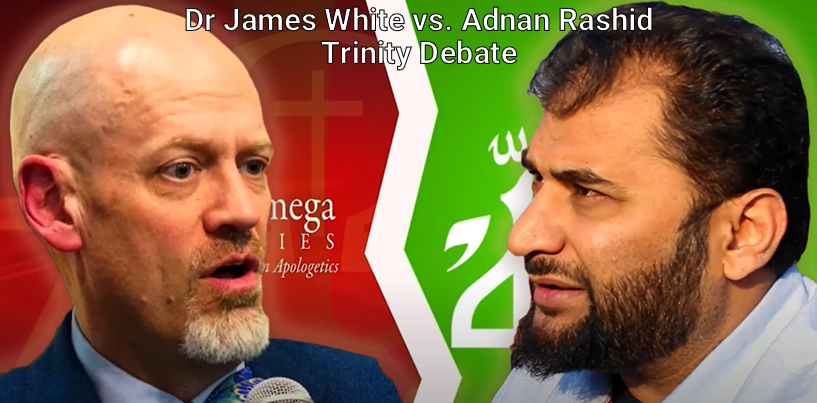Reflections on the Baptist Confession of Faith of 1689. 23 Aug 14 began a perhaps unbroken, orderly, and personal journey through my favorite written confession of faith. This will be my personal reflections on this beloved written codification of the Christian faith according to a Baptist flavor.
NEXT-
CHAPTER 2
Paragraph 3: “…of one substance, power, and eternity, each having the whole divine essence, yet the essence undivided: the Father is of none, neither begotten nor proceeding; the Son is eternally begotten of the Father; the Holy Spirit proceeding from the Father and the Son…”
Oh, to truly try to detail God in his being. What an impossible yet glorious task given to the church. God has told us many things about himself. Our job as a church for the past five thousand or so years has been each book, each sermon, or each devotional detailing and doing our best to describe him so that all who look to him might see him better and better and therefore be changed by truth into something more beautiful.
What the creed writers are doing here is upholding various individual aspects of God that must each be maintained for each member, personage or person of the Trinity to be fully God, something we believe all three to be. There are many more such attributes they could list and do list elsewhere.
There is the Father called God, the Son called God, and the Holy Spirit called God. Each must be of, “…one substance, power,” etc., in order to in fact be God, yet they must also be separate. Just one reason this must be so I’d like to highlight here today. Whenever we speak of separating the nature of God into three persons we lose the heretics. We lose the non-Christians quickly.
If we speak of them being equal or “of one substance” yet separate as they do here then we begin to have to define what that looks like all over the place. Establishing division in the godhead becomes important. We must show that Jesus is separate from the other members of the Trinity while at the same time establishing that they cannot be different gods or else we’d be polytheists like the Mormons, something we are not.
We must understand that Jesus is a “mediator.” This necessitates someone else to be on the other side of his mediation. This is precisely what Scripture teaches. “For there is one God and one Mediator between God and men, the Man Christ Jesus,” 1 Timothy 2:5. In order to have the Father we must have the Son. There is the need of one in order to have the other, 1 John 2:23, etc. One interesting piece of biblical majesty is in the foreshadowing of this mediatorial necessity in the book of Job. Job was suffering under the plans of God at this time in his life, and was trying to work through the “whys” of it all and said-
“For He is not a man, as I am,
That I may answer Him,
And that we should go to court together.
33 Nor is there any mediator between us,
Who may lay his hand on us both.
34 Let Him take His rod away from me,
And do not let dread of Him terrify me.
35 Then I would speak and not fear Him,
But it is not so with me.” Job 9:32-35.
Job was not alive after Christ came. He is instead one of those that Peter spoke of thousands of years later who was as we see here prophetically, “…ministering the things which now have been reported to you through those who have preached the gospel to you by the Holy Spirit…” 1 Peter 1:12. Job longed for the mediator that is Christ.
Job did not have this mediator by name; we now do. He now, God the Son, Jesus the Christ, is our mediator between us and God the Father. You, a person, must have this person to have that God. This is only possible through the work of God the Holy Spirit in our lives. This is all Trinitarian theology.
The Son and the Holy Spirit are separate from the Father, yet there is only one God. The Holy Spirit did not die on the cross. The Son did not send the Father to earth to be born of the virgin. There are separate roles each play in this drama we call life. One cannot truly have dialogue with oneself as two actually different entities. Jesus nonetheless converses with the Father often in his prayers. There is dialogue, not monologues and asides when Jesus speaks to the Father in heaven such as in John 17.
Dr. Grudem has done well in his text Systematic Theology to diagram some helpful things here. The first picture tries to show what the nature of God is like. There is separation in being or person, but not in essence or substance-
The next few diagrams show what God is not-
These pictures work because when the ideas that go into drawing them are weighed in light of Scripture one sees how the last few cannot stand and how the first is what we see. (I took these slides from a message I preached downrange called ). All of these Power Point Slides are available. It's message #125 in the audio section.
Jesus is not one-third of God, he is fully God. The Father is not one-third God, he too is fully God.
When we speak of the Holy Spirit “proceeding” from the Father and the Son this is not to say that he is like some sort of mere emanation. In other words the Holy Spirit is not like the heat from a light bulb where God is the bulb itself and he simply comes out of it as secondary. When we speak of this “proceeding” think of a sending. He is sent (he proceeds from) the Father. He is sent by the Father to reveal the Son. He is the ultimate back stage mover and shaker in the church. He is not adding revelation to reveal himself in this life. He is instead the one who is at work in the church today in the equipping of the saints for their work one the purchased work of the Son on the cross.
As we see the intricacies of the Trinity more and more on the pages of Scripture we begin to see what a task we have in the church to seek it out more and more for ourselves.
The Athanasian Creed dates back to about the fifth century. It is one of the most in-depth descriptions of the church’s definition of Trinity. I highly recommend anyone read it.
God bless!








Leave a Reply